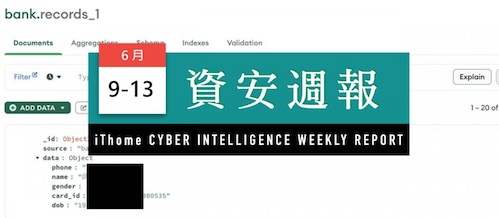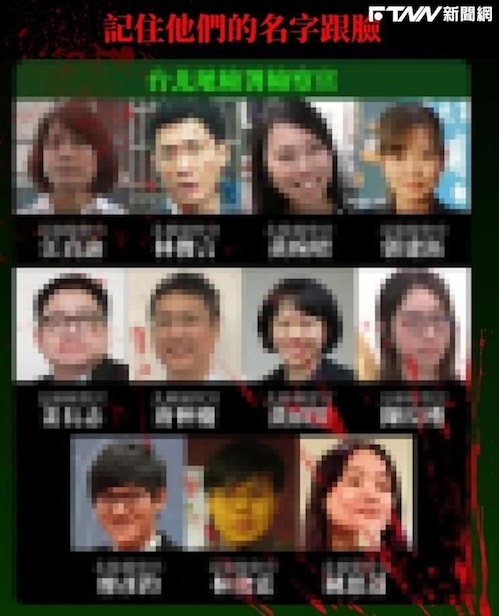It seems like the real problem here is that – according to the government – the English ability of Taiwanese people just isn’t up to snuff. But if that’s the case, why not just change the way it’s taught at school instead of implementing an all-encompassing policy?
Does Taiwan really need to become a bilingual nation? According to the Democratic Progressive Party (DPP) administration, which recently introduced a policy to that effect, the answer is ‘yes’. But what gives? I mean, what are the actual benefits of making everyone learn English?

It certainly sounds nice to say that – just like Hong Kong, Singapore and the Philippines – everybody in Taiwan can speak English as well as the native Mandarin. But isn’t that already happening, to some extent? Currently, Taiwanese children start learning English in primary school (while some begin way before that, enrolling in private classes at as early as three years old!), and – as anyone who’s lived there knows – many parents also send their kids to cram schools at night, to study even more English (among other subjects). Plus, when people in Taipei set eyes on a Western person, they often spontaneously break into that international lingua franca.
Actually, the amount of people that speak English in Taipei can be disconcerting, especially if you’re trying to learn Mandarin. For example – as a foreigner attempting to learn Chinese myself – the following is a common experience I’ve had: I walk into a coffee shop, and the girl behind the counter sees me and immediately says: “Hi, welcome. How are you?” I then go up to order, determined to use my fledgling Chinese language skills – despite what she’s just said – and utter, “Qing gei wo yi bei nai cha, xie xie” (請給我一杯奶茶,謝謝). Having made it clear that I speak a little Mandarin, I naturally expect her to respond in that language, as it’s the native tongue of the land we’re in, and yet, instead she says, “You want hot or cold?” – a question that, infuriatingly, isn’t even completely correct English! At that point I usually get frustrated and mutter, “Hot”, quickly stepping aside to avoid talking more in a language I didn’t intend to speak upon entering.
Perhaps that barista just wants to make me feel at home by speaking ‘my’ language (but what if I were French? Or Italian? Or Russian?). However, it’s also possible that she simply wants to ‘use me’ to practice her English, or maybe her belief that foreigners don’t speak Mandarin is so strong that she can’t trust the evidence of her senses. (Side note: I recently visited Japan, where I found that people always, regardless of what you look like, start off by speaking in Japanese, and only after you begin hemming and hawking or a make a confused face do they switch to English). Don’t get me wrong – Taiwanese people are some of the nicest, most polite and welcoming on Earth, but it’s kind of annoying when you’re trying to improve your Chinese – a difficult language to begin with – and everywhere you go people talk to you in English, because, well, you’re white.
But I digress. The point is that, from the perspective of foreigners who come to Taiwan to learn Mandarin (and there quite a few of them), the idea of making Taiwan a bilingual country may seem unnecessary, if not absurd, as most people under the age of 35 – at least in the capital – appear to already have that ability, while a policy of forcing everyone to speak English may diminish even further the natural Chinese practice opportunities available on the street.
But, besides this (somewhat selfish) point, there are other reasons I’m not so enthusiastic about Taiwan becoming English-bilingual.
First, one doesn’t need to be fully bilingual to function effectively in the international business world. Many people, from lots of different nations, do just fine with the English they learn through normal channels – e.g., at school or by studying abroad – and although they may not be able to write poetry or read Faulkner without having a dictionary handy, they don’t need to. What they need, basically, is to understand an English-language email (not exactly advanced literature) and be able to have a straightforward conversation about negotiating prices, invoicing, technology, etc. I’ve personally worked for two different Taiwanese companies over the years, and at both of them a lot of people spoke decent English, meaning we had few problems communicating and the workflow was almost never impeded by language issues. Frankly, it just doesn’t seem necessary to expend so many resources making everyone bilingual if all they’re going to do is chat with foreign clients.
Second, Taiwan has an ugly history of its native tongues being suppressed by the powers that be. Initially, it was the Japanese, who during the colonial period did their best to eradicate Hokkien (aka Taiwanese) and other indigenous languages through compulsory education in their own tongue, and then, when the Kuomintang arrived in 1949, they made everyone speak Mandarin in an effort – once again – to stamp out the native idioms they didn’t care for. Both these efforts eventually failed (although almost everyone now does speak Mandarin), as many people on the island still speak Taiwanese and other languages. But given this disturbing historical situation, the government should at the very least tread lightly over any notion of introducing a new, foreign idiom that every citizen has to learn. For instance, how will the less-frequently spoken Hakka and Aboriginal tongues fare when the speakers of them – besides needing to learn Mandarin – are also forced to acquire English? Will these seemingly less ‘useful’ and more ‘obscure’ languages simply fall by the wayside from disuse? And while the administration’s reason for implementing its bilingual policy is to help Taiwan’s ‘economic competitiveness’ – something most citizens probably support – I have wonder what the Japanese and KMT’s justifications were for getting everyone to learn their languages.
Finally, the DPP National Development Council Minister, Chen Mei-ling – whose agency is responsible for the new policy – cites the English fluency of officials in Germany, which she recently visited, as an inspiration for Taiwan’s bilingualism. The irony, though, is that neither Germany nor any other non-native English-speaking country in Europe considers itself ‘bilingual’ or lists English as an official language. They simply have an effective education system for language learning – one that likely emphasizes speaking and listening over the reading and rote memorizing of Taiwan’s.
It seems like the real problem here is that – according to the government – the English ability of Taiwanese people just isn’t up to snuff. But if that’s the case, why not just change the way it’s taught at school instead of implementing an all-encompassing policy? Maybe it’s because the administration believes that by making bilingualism law, schools will have no choice but to comply, accelerating the process of Taiwan becoming a global competitor (in fact, the target for making the country bilingual is set for 2030, which feels far-fetched given that it took the British – who, like the Japanese, were colonial invaders – 20 years to make all Singaporeans speak their language). If that’s the case, one can only hope the DPP gives this issue the sensitivity it deserves, and doesn’t end up putting ‘business competitiveness’ ahead of its own people’s identity. Otherwise, the administration may go down in history as a version of those very powers it claims to vehemently oppose.
Author / Javier Smith



